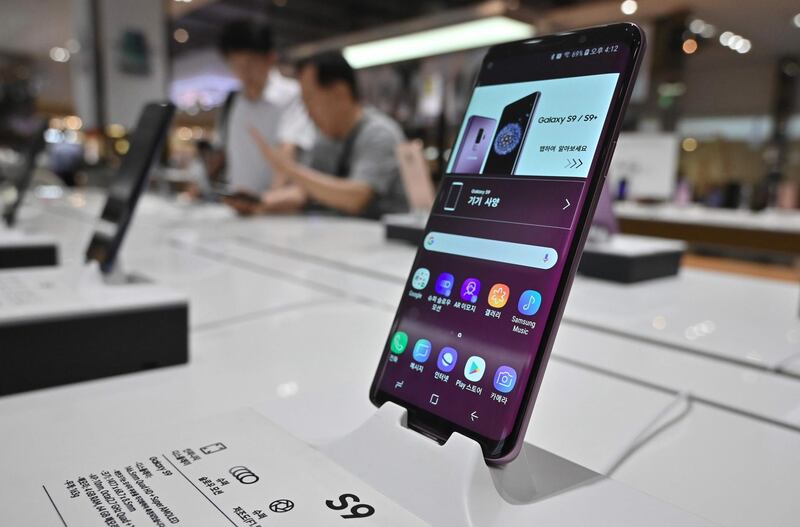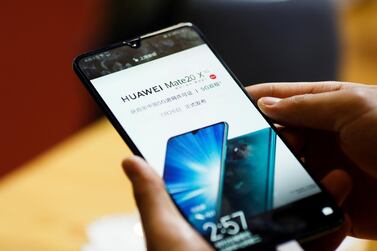Global smartphone sales will fall by nearly 2.5 per cent year-on-year in 2019, according to US-based researcher Gartner.
That would be the second year running smartphone sales declined, following a more than 5 per cent year-on-year slump in 2018 - the first time annual deliveries fell worldwide.
“Lengthening smartphone replacement cycles and a ban on Huawei [even though currently partially lifted] accessing technology from US-based suppliers weakened demand for smartphones in the first half of 2019,” said Annette Zimmermann, research vice president at Gartner.
Despite the US administration’s directive that allows suppliers to work with Huawei again, Ms Zimmermann said “the situation remains unclear”.
“The ban on Huawei has created negativity around the brand and is likely to open a few opportunities for other manufacturers in overseas markets such as western Europe,” she added.
Gartner expects global demand to weaken further in the second half of the year due to fewer customers replacing their existing phones amid a derth of ground-breaking innovations and additional features in newly launched smartphones, it added.
Worldwide sales of smartphones to end users will be around 1.5 billion units by the end of this year, nearly 40,000 fewer units than last year, according to Gartner.
Japan, western Europe and North America will witness the steepest declines of between 4.4 per cent and 6.5 per cent. However, smartphones sales will increase by around 1 per cent in Middle East and North Africa.
“In mature markets, the high-end smartphone industry is particularly oversupplied, with higher average selling prices and no compelling new utility or experiences for users to upgrade to,” said Roberta Cozza, senior research director at Gartner.
Global smartphone shipments fell by almost 2.3 per cent to reach 333.2 million units in the second quarter of 2019, according to data compiled by International Data Corporation.
South Korean brand Samsung maintained first position with a 22.7 per cent global market share while Huawei retained the number two slot with over 17 per cent market share. Suffering a yearly drop of more than 18 per cent in shipments, Apple’s market share fell to 10.1 per cent.
Industry analysts say smartphone sales will grow in 2020, driven by the broader availability of 5G-enabled phones and promotional activity by service providers.
“Sales will start to ramp up in the second half of 2020 as the coverage and availability of 5G hardware services improve,” said Ms Zimmermann.
However, Gartner forecasts that sales of 5G smartphones will top 15 million units in 2019, still less than 1 per cent of total smartphone sales.
Leading mobile manufacturers have started offering their first 5G smartphones - such as the LG V50 ThinQ, Oppo Reno 5G, Samsung Galaxy S10 5G and Xiaomi Mi MIX 3 5G - and service providers have started to offer some aggressively priced packages but overall 5G smartphone sales are set to remain small in 2019.








